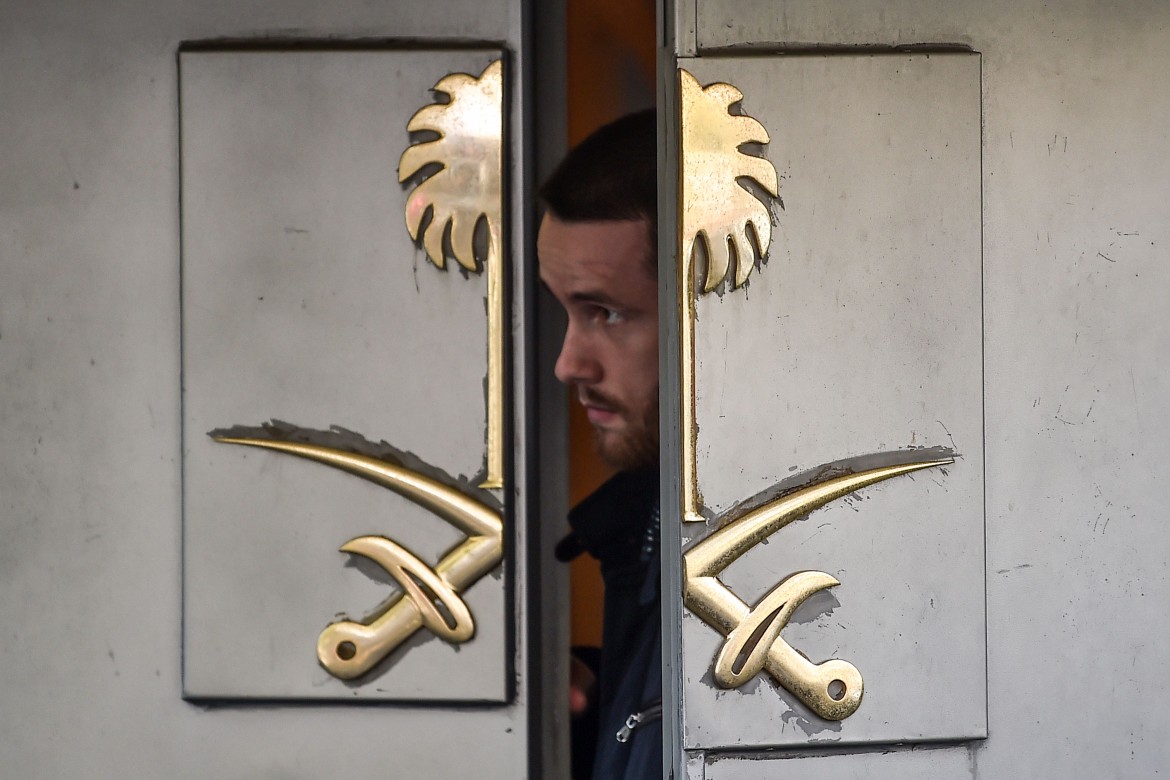Analysis
Khashoggi’s murder is a first crack in the Saudi-Western front
As the truth seeps out about the death of journalist Jamal Khashoggi, the Saudi crown prince is looking less like the ‘reformer.’ Why are we all so deferential toward the Saudi dictatorship?

Something is rotten in Riyadh—but also in Washington, and in the hypocritical European cabinets.
On Tuesday, Trump sent Secretary of State Mike Pompeo on an emergency trip to Saudi Arabia—not so much in order to find out the real, unspeakable truth about the death of the journalist Jamal Khashoggi, but rather to see if the Saud family are still in charge of things. The Saudis have been unable to win the war in Yemen, have lost the proxy war in Syria against Assad and Iran, and are fighting with other Arabs and amongst themselves for the succession to the throne. And now, the custodians of Mecca have also lost their grip on the unlikely yarn of a “reform” of what remains an absolute monarchy, legitimized on strict religious grounds.
On Oct. 2, Donald Trump uncharacteristically let a small truth escape his lips at a rally in Mississippi, where he claimed that he told the old King Salman: “King—we’re protecting you—you might not be there for two weeks without us—you have to pay for your military.” But now, it might no longer be enough to just pay the Americans off.
Why are we all so deferential toward the Saudi dictatorship? The grisly end that Khashoggi—an erstwhile adviser to the Saudi Crown and acquaintance of Osama bin Laden—met in the Saudi consulate in Istanbul raises once again a crucial problem: the US does not intend to, or indeed cannot, set a limit to the arrogance of Riyadh, their number one client in the arms trade, which spends no less than a sixth of their defense budget on US military equipment. The Saudis have been financing radical Islam for decades, and the “War on Terror” launched by the US in 2001 was itself fueled and influenced by Riyadh, from Afghanistan to the Middle East. And now, the US is slapping sanctions on Iran at the behest of the Saudis and the Israelis. Are we just going to toe the line again?
Yes, we are—because everyone is on the Saudis’ payroll.
The Crown Prince Mohammed bin Salman has been described as an enlightened reformer. But one can’t take granting women the right to drive and call it full-blown “reform.” In actual fact, MBS (as is his usual moniker) has been engaged in a power struggle to take out the other princes of rival blood, whom he had confined last year in luxury hotels in Riyadh. Not content with that, he even detained Lebanese Prime Minister Rafik Hariri, guilty of not being tough enough on Hezbollah, allies of Iran—the real enemy of the Saudis. There is a price for these actions. There is no “reform” happening in Saudi Arabia: the country remains the exclusive property of one family.
And the US has not shown that it possesses the will to change the course of things. Instead, by tearing up the nuclear deal with Iran from 2015, they sent the Saudis a double message: first, together with Israel, the US will support the Saudis in all their proxy wars against Iran; and second, the US is against real reforms, and against the Muslim Brotherhood, supported by Obama during the Arab Spring. As a result, MBS went all-in in Yemen, committing pointless massacres there, and ordered the boycott of Qatar, guilty of hosting the leaders of the Brotherhood.
In a barrage of obsequious garbage of a kind that has rarely been seen in the Western press, MBS was touted as an “enlightened” dialogue partner, thanks also to Israel’s support. The best friend of Mohammed bin Salman in the West is now Jared Kushner, Trump’s son-in-law, himself Jewish, who, as special envoy to the region, has developed a special rapport with the Saudi prince. Kushner was the one who organized MBS’s visit to the US to sign military contracts and to put on a road show for the benefit of American finance. We in Europe—both France and Italy—were also lavished with cash when, on his stop in the UK, MBS ordered fifty Tornado fighters, which are made by a consortium in which Leonardo-Finmeccanica holds a 30 percent share of the profits.
In Saudi Arabia, Westerners’ eyes turn to dollar signs. Along with Israel, Riyadh has been a major strategic ally of the US ever since 1945, when President Roosevelt met the Saudi King Ibn Saud. Since then, the Americans have never wavered in their support of the Wahhabi monarchy, except when Obama signed the nuclear deal with Iran.
In the 1980s, the Saudis were the ones financing the Afghan mujahideen, who would later become the jihadists of nowadays, to wage war against the Soviet Union. And it was the Saudis, together with the Gulf monarchies, who fueled Saddam Hussein’s war of aggression against Tehran, which resulted in a million dead. The Saudis and Qatari were also the financiers behind jihadist groups fighting against Bashar al-Assad, groups that nobody is able to get rid of now. What ties together the US and the house of Saud is not a regular alliance, but complicity pure and simple in the greatest disasters and massacres of the past half century. That is the only truth that we know with absolute certainty.
Originally published at https://ilmanifesto.it/usa-e-saud-complici-nei-massacri/ on 2018-10-17
